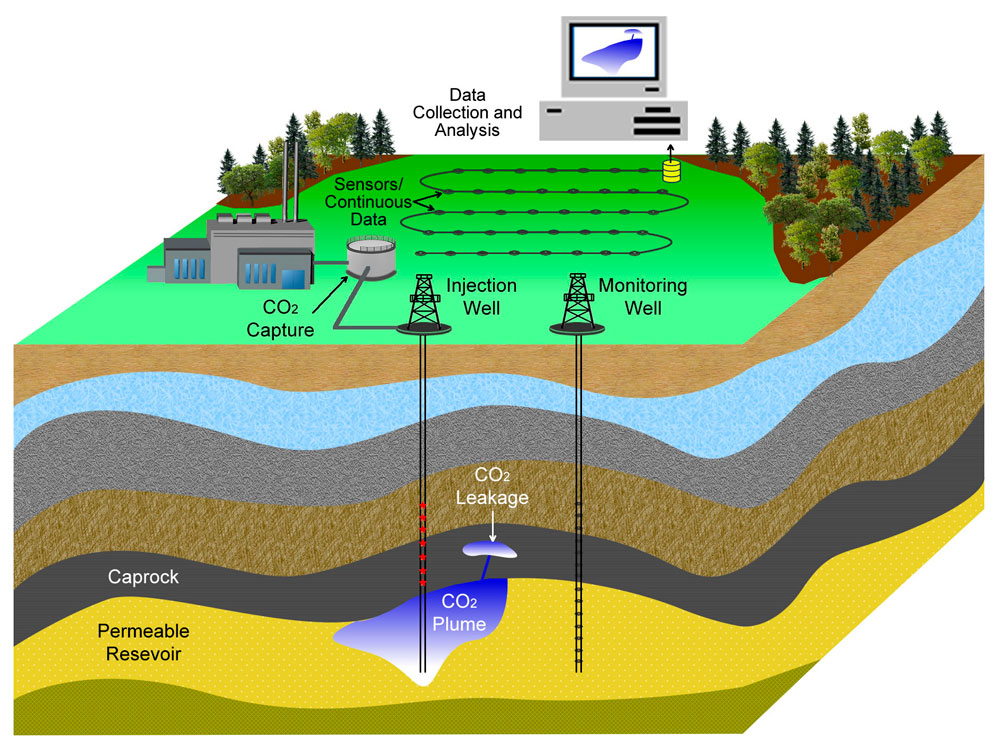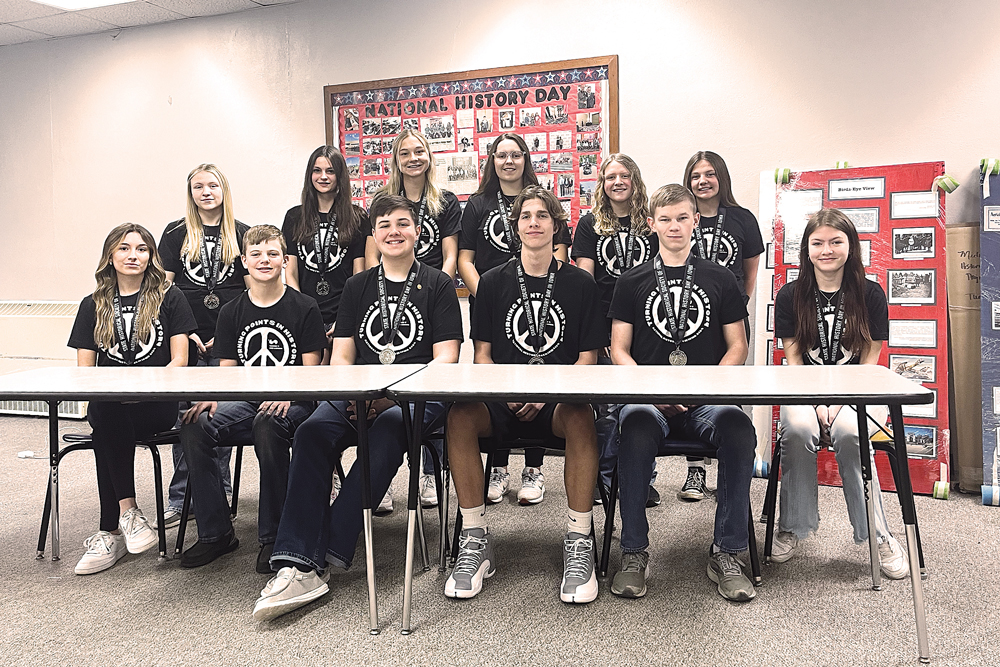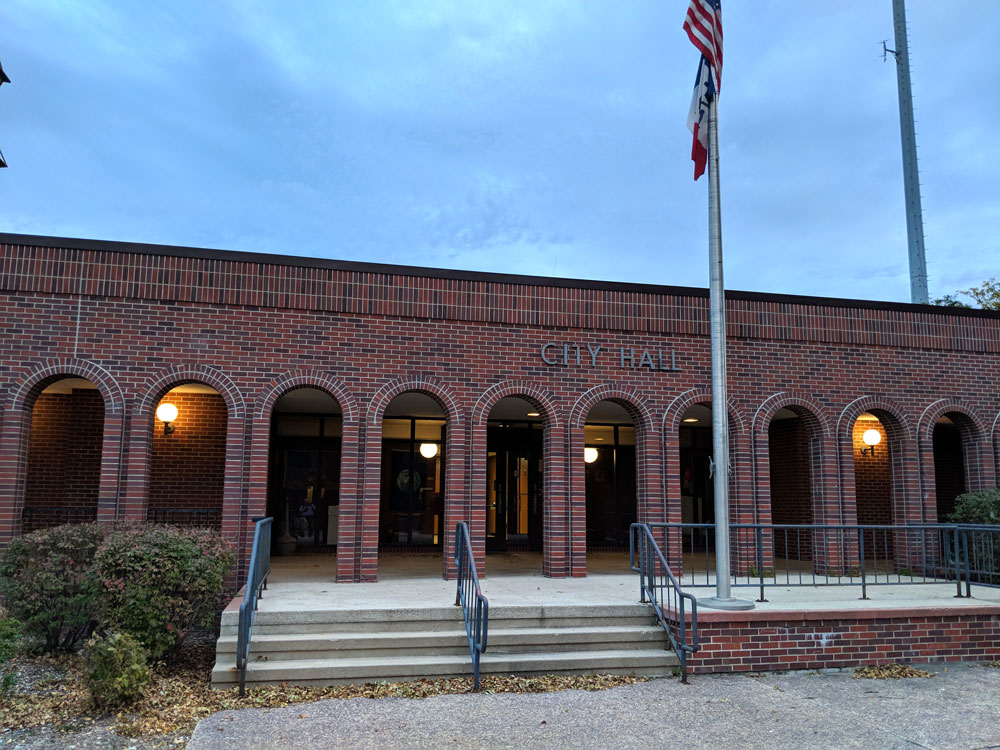Carbon dioxide capture pipelines proposed through Floyd County

By Bob Steenson, bsteenson@charlescitypress.com
Two multi-billion-dollar projects want to take carbon dioxide produced by ethanol plants, fertilizer plants and other CO2-producing industries, compress it into liquid, then pipe it to underground storage areas, rather than have it released into the atmosphere and contribute to climate change.
Both proposals would build their underground pipelines through the Midwest, including Iowa — and including through Floyd County.
The Floyd County Board of Supervisors heard a proposal at the board’s workshop meeting this week from an engineering company that would like to provide the required inspection services for the projects’ construction through the county.
Tiffany Kruizenga, pipeline office administrator for ISG, an engineering, architecture, environmental and planning company with offices in Des Moines and elsewhere, was on a video chat with the supervisors.
She said that two pipelines are expected to come through Floyd County — Midwest Carbon Express and Heartland Greenway System — and that state law requires that the county provide inspection services from the beginning of the projects when right-of-ways are staked out, to clearing soil, trenching, temporary and permanent tile repair, backfilling, restoration and more.
The requirement is that any agricultural land that is disturbed is returned to its original condition when the project is completed in that area, she said.
Counties can provide that inspection service on their own and get reimbursed for the expense by the pipeline companies, but many counties don’t have people on staff with the time or the expertise to meet the state requirements, she said.
Her company’s proposal was that it would provide the appropriate inspectors, including for 10-12-hour days, six or seven days a week if necessary. ISG would bill the county, then the county would pass the bill along to the pipeline.
“ISG works for the county, not the pipeline,” Kruizenga said. “The pipeline pays the county for the cost, then the county pays ISG.”
If there was ever a delay in the county getting paid, then ISG would wait, also.
“We don’t get paid until you get paid,” she said.
Kruizenga said her company has worked in Iowa on other pipeline projects, providing the same services. On the Dakota Access Pipeline, an underground oil pipeline that traversed Iowa from the northwest to the southeast and was constructed in 2016-2017, ISG represented 13 out of the 18 Iowa counties affected by that project.
Right now, only the Midwest Carbon Express project has had public hearings set by the Iowa Utility Board in each affected county, she said.
In Floyd County, that meeting will be 6 p.m. Monday, Sept. 20, at the Floyd Community Center.
The Cerro Gordo County meeting will be 1:30 p.m. Sept. 20 at NIACC in Mason City, and the Chickasaw County meeting will be 1 p.m. Sept. 29 at the Chickasaw Event Center in New Hampton.
Evan Del Val, a civil engineer with ISG, said in an email to the supervisors that the company was requesting the county sign a letter of intent to use ISG for the inspection service.
“This letter does not function as any kind of contract, it simply provides us with some measure of certainty when preparing for the work associated with this project,” he wrote.
Kruizenga said one advantage of signing the letter of intent before the public meeting is that an ISG representative would attend the meeting, “to help answer questions, to make sure that if there’s anything we can help with in our experience that would be better off for any of the landowners in your county, that we can help address those things.”
The supervisors took no action on the request at the meeting this week, nor could they as it was a workshop meeting.
Supervisor Doug Kamm said there was no real hurry to make a decision, and that neither of the projects can receive a permit from the Iowa Utility Board until after the public meetings. There are 32 counties listed on the Midwest Carbon Express public meeting schedule, running from Sept. 13 to Oct. 15.
“This could very well be the person that we’re going to hire, but let’s do our investigation first,” Kamm said.
Kruizenga said ISG had letters of intent already from Cherokee, Buena Vista, Kossuth and Chickasaw counties, and that Chickasaw County Engineer Dusten Rolando had been at the meeting where that board discussed it. Rolando is also county engineer for Floyd County.
Midwest Carbon Express, a $4.5 billion proposal by Summit Carbon Solutions, would capture carbon dioxide emissions from ethanol and other manufacturers in Iowa, Minnesota, Nebraska, South Dakota and North Dakota, and pipe it in liquid form to North Dakota, where it would be contained in underground rock formations.
So far about 30 ethanol plants including 10 in Iowa have committed to the project, the company said.
It recently hired former Iowa governor and ambassador to China Terry Branstad as a senior policy advisor. John Deere recently announced that it was making a strategic investment in the project.
Summit Carbon Solutions is a division of the Summit Agricultural Group, founded and run by Iowan Bruce Rastetter.
The other carbon pipeline project, Heartland Greenway System, is a proposal by Navigator Energy Services of Dallas, Texas. It would include carbon-dioxide-emitting industries in Iowa, Minnesota, South Dakota, Nebraska and Illinois, and pipe the liquid carbon dioxide to underground rock storage in central Illinois.
Valero Energy Corp., has signed on as an anchor company for the $2 billion-plus project, with eight ethanol plants in the five states.
The advantage of capturing CO2 from ethanol plants as opposed to other industries is that ethanol, because it ferments biomass such as corn to create alcohol, produces an almost pure stream of CO2 with a little water vapor, whereas other energy producers produce emissions where the CO2 must be separated out at a higher cost.
Both pipeline proposals could be active as early as 2024 or 2025, and would take advantage of federal tax credits that will pay up to $50 for every ton of carbon a facility captures and stores underground.
The two projects propose capturing and storing 12 million metric tons of CO2 per year each.
In addition, energy companies such as ethanol producers that store their CO2 lower their “carbon dioxide intensity” score, meaning they can sell their products at a lower price per gallon, and can sell them in states such as California and in other countries where there are stringent carbon regulations.
Capturing 12 million tons of CO2 per year is the equivalent of removing approximately 2.6 million cars from the road or planting 550 million trees per year, according to information from the companies.







Social Share